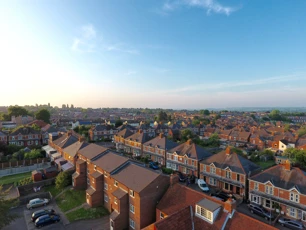Conversations about energy efficiency are more common now than ever. That’s in part because of the energy crisis, but also because of changing regulations and a larger public interest in sustainability and green living.
As a homeowner, you may not have given much thought to your Energy Performance Certificate (EPC) rating. In fact, if you’ve lived in your home for more than a decade and have no plans to relocate, you may not even have an EPC.
For landlords, however, EPCs are one of the most important property documents to consider. Let’s explore why your EPC rating really matters.
Legal requirements
In October 20081, regulations were put into place mandating that every property must have an EPC rating before being marked for rent. Since January 9 2013, it became law for all rental property ads to have this rating displayed. This means prospective tenants can make informed decisions about their future homes, and how much they may need to pay in potential heating costs.
As of April 2018, it is now a legal requirement that all rental properties must have an EPC rating of E or higher. This law applied to new lets and tenancy renewals, while further action came in as of April 2020, mandating that all existing tenancies must have their EPCs up to scratch.
Failure to comply with this could result in civil penalties of up to £4,000, with properties not meeting standards after three months potentially facing fines of up to 20% of the rental value.

Future changes to EPC regulations
There has recently been some debate about what new regulations to put in place, with Rishi Sunak announcing in September 20232 that 2025 and 2028 EPC plans were to be scrapped.
This would have meant that from 2025, all new tenancies must have a minimum EPC rating of C, and all existing tenancies up to the same by 2028. Landlords would have been solely responsible for upgrading their properties to meet these standards, but many were concerned about the financial costs involved with improving their buy-to-lets.
While no new regulations have been put into place, with the UK’s net zero 2050 goal, it’s safe to say that some regulations will come into play at some point in the future. However, whether that’s in the near or distant future remains to be seen. Irrespective of being a legal requirement or not, there are benefits to improving a property’s EPC rating - both to adhere to future rules and to attract new tenants.
The benefits of improving EPC ratings
For landlords, enhancing energy efficiency can future-proof their investments, attract environmentally conscious tenants, and increase their property’s value. There’s plenty landlords can do to improve their property’s EPC rating, from small to big changes.
Check out our article about improving your EPC to learn more.
How to stay compliant
The best way to stay compliant is to work with accredited assessors. You don’t need to regularly renew your EPC while you have tenants, but you may need to check that your EPC is still valid if you’re marketing to new tenants. An EPC is valid for 10 years, and non-compliance can result in fines of up to £5,0003 for landlords. It’s also crucial that you seek tenant consent when making EPC improvements or assessments, and always provide them with a copy of the EPC.
Why your EPC rating really matters
It’s not just a case of staying compliant - it’s about providing the best possible living conditions for your tenants. That means warm homes and comfortable budgeting options, so the higher your EPC, the better it will be for your tenants.
The happier your tenants are, the longer they’re likely to stay.
While making improvements may seem costly, it doesn’t have to be. Check out our article to learn more about what costs to expect if you’re looking to improve your buy-to-let’s energy efficiency.
If you’re considering a remortgage as a way to fund property improvements, get in touch with us and let’s have a chat. We can discuss options for releasing funds from your property to help finance your improvement project.
We can help with all your buy-to-let mortgage needs, so reach out today and let’s work together to make the most of your investment property.
References:
- Landlord’s Guild England
- Financial Reporter, 2023
- GOV.UK - updated 2023
Important information
There is no guarantee that it will be possible to arrange continuous letting of the property, nor that rental income will be sufficient to meet the cost of the mortgage.
Your property may be repossessed if you do not keep up repayments on your mortgage.
There may be a fee for mortgage advice. The actual amount you pay will depend upon your circumstances. The fee is up to 1% but a typical fee is 0.3% of the amount borrowed.
Related Articles
What’s an EPC rating?
Energy prices are rising and a low EPC rating may be contributing to how much you’re paying for your power.
What landlords need to know about EPC regulations
Landlords of residential properties and buy-to-lets must have an Energy Performance Certificate (EPC) rating, but there are changes to the regulations coming. Here’s everything you need to know.
Does EPC rating impact property value
Buyers may be interested in paying more for energy efficient homes, especially as energy prices rise
No posts currently available




